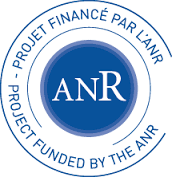job-2019-lis-postdoc
Differences
This shows you the differences between two versions of the page.
| Both sides previous revision Previous revision | Last revision Both sides next revision | ||
|
job-2019-lis-postdoc [2018/12/26 10:26] carlos.ramisch |
job-2019-lis-postdoc [2018/12/26 10:31] carlos.ramisch |
||
|---|---|---|---|
| Line 22: | Line 22: | ||
| Albeit this progress, the performance of MWE identification systems is still not on pair with the performance of other text analysis tools. For instance, the best MWE identification system at the [[http:// | Albeit this progress, the performance of MWE identification systems is still not on pair with the performance of other text analysis tools. For instance, the best MWE identification system at the [[http:// | ||
| - | Part of these figures can be explained by the challenging nature of MWEs, and by the sparse amount of training data. However, the models being employed are also not fully compatible with the nature of the task. Indeed, supervised learning is based on generalisations made from observations. MWEs are by definition idiosyncratic, | + | Part of these figures can be explained by the challenging nature of MWEs, and by the sparse amount of training data. However, the models being employed are also not fully compatible with the nature of the phenomenon. Indeed, supervised learning is based on generalisations made from observations. MWEs are by definition idiosyncratic, |
| **The goal of this postdoc is to improve current MWE identification systems by trying to increase their performance on unseen MWEs**. Therefore, the recruited researcher will study, implement and evaluate original methods to enrich supervised MWE identification models with information automatically extracted from large unannotated corpora. Methods to discover MWEs in corpora abound ([[http:// | **The goal of this postdoc is to improve current MWE identification systems by trying to increase their performance on unseen MWEs**. Therefore, the recruited researcher will study, implement and evaluate original methods to enrich supervised MWE identification models with information automatically extracted from large unannotated corpora. Methods to discover MWEs in corpora abound ([[http:// | ||
job-2019-lis-postdoc.txt · Last modified: 2018/12/26 10:33 by carlos.ramisch

